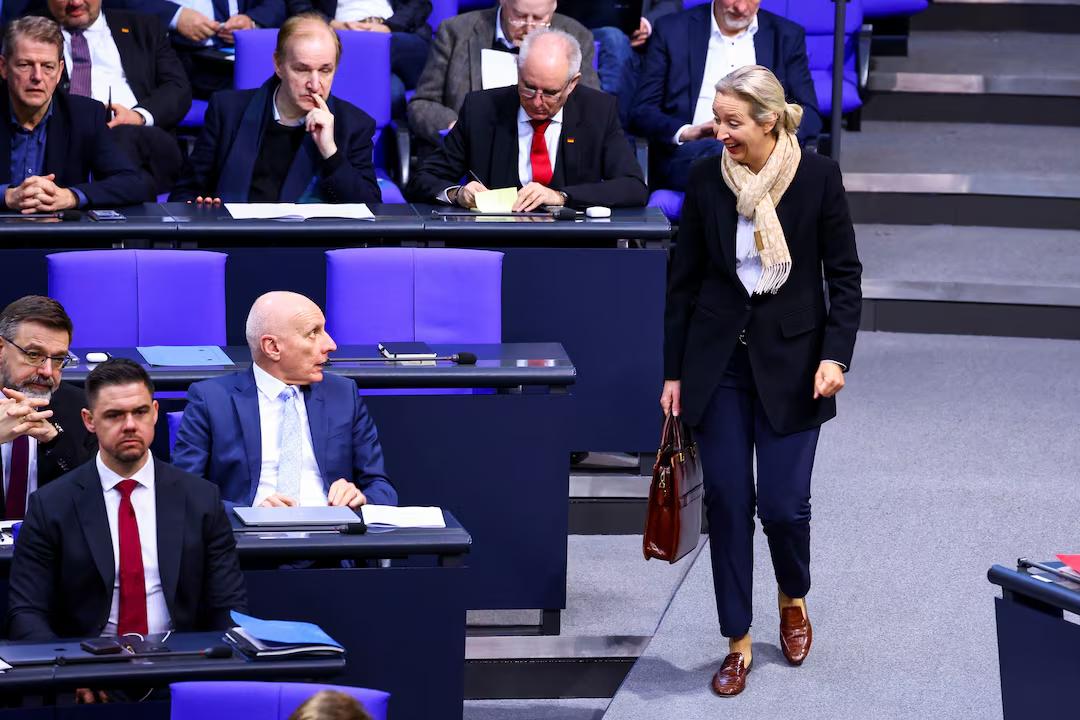Immigration Law Sparks Heated Debate in Germany’s Parliament, Possible First-Time Support from Far-Right Party
Berlin, January 31: For the first time in Germany’s history since World War II, a law might pass with the support of the far-right party Alternative for Germany (AfD). A vote is scheduled in Parliament on Friday regarding a proposal to enforce stricter measures on immigration control.
Immigration Law Sparks Heated Debate in Germany’s Parliament, Possible First-Time Support from Far-Right Party
Immigration Law Sparks Heated Debate in Germany’s Parliament, Possible First-Time Support from Far-Right Party
Berlin, January 31: For the first time in Germany’s history since World War II, a law might pass with the support of the far-right party Alternative for Germany (AfD). A vote is scheduled in Parliament on Friday regarding a proposal to enforce stricter measures on immigration control.
Friedrich Merz, leader of the opposition Christian Democratic Union (CDU), expressed his support for tougher immigration policies, stating that such measures are urgently needed due to recent murders involving immigrants, which have caused public fear.
However, Chancellor Olaf Scholz’s Social Democratic Party and its coalition partner, the Green Party, have opposed the proposal. They argue that the measures will neither effectively solve the immigration issue nor reduce political division.
If the proposal passes with AfD's support, it would mark a significant symbolic moment in German politics. Mainstream parties have traditionally avoided aligning with AfD on any legislation.
Nevertheless, even if the proposal passes in the lower house, it is unlikely to gain approval in the upper house. Regional leaders from the CDU have already stated they will not support any legislation passed with far-right backing.
In response to the opposition’s initiative, the government and their former coalition partner, the Free Democratic Party (FDP), are working on a compromise proposal that could send the bill back to committee before it goes to a vote.
The debate has escalated tensions in Germany’s political landscape. Analysts suggest that if legislation passes with AfD’s support, it would break long-standing political conventions in the country.










